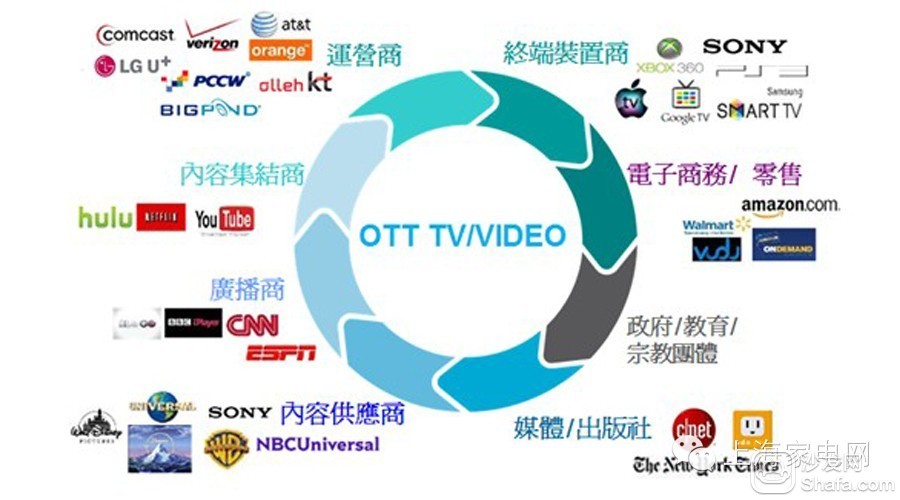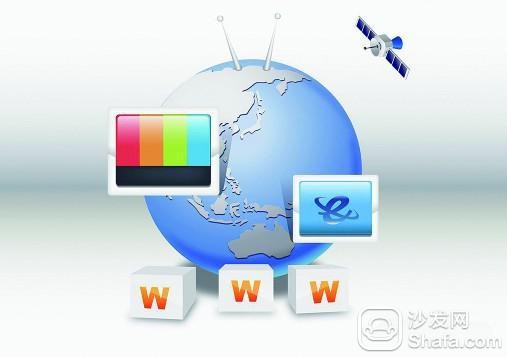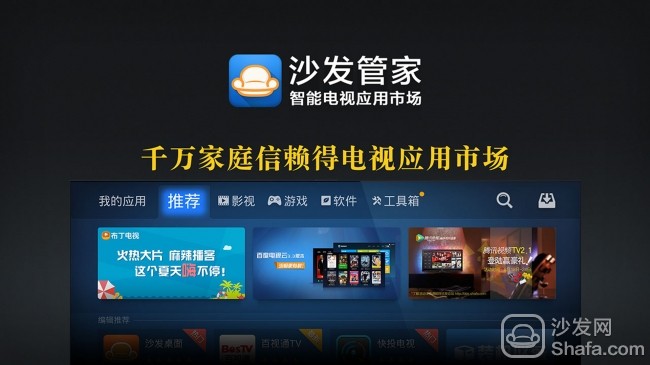
Internet TV is abbreviated as OTT TV. The abbreviation for "Over The Top TV" refers to video services based on open Internet. Terminals can be TVs, computers, set-top boxes, PADs, smart phones, and so on.
As the OTT concept is gradually familiarized and accepted by users, the content industry chain around OTT is constantly improving. Internet TV, one of the carriers for OTT development, ushered in a period of rapid growth, according to AVC. According to the data, the penetration rate of Internet TV has increased from 57.6% in 2013 to 71.4% in 2014, an increase of nearly 14%. However, with the order of the SARFT in July, the TV version of the video APP had to go offline, and OTT TV operators could only seek new business models under the increasingly strict industrial supervision and change the original OTT TV development path. Ovid Consulting (AVC) believes that the future development of OTT will focus on the following three points:

First, video APP to explore new models, game e-commerce whip run
Live broadcast and review functions as well as non-compliant video apps are the two main elements of OTT TV reorganization. However, since video is the largest application of television, rigid demand is still there. Finding a “legal identity†for itself becomes the main countermeasure adopted by many video websites. It has re-entered through the use of licenses, renamed names, etc. to expand itself. Market share on the living room screen, but Ovid Consulting (AVC) believes that the future development of the Internet video business on the TV side depends on high-quality and differentiated video content services, and video websites after re-seat should continue to focus on themselves in the video The core competitiveness of the business.
On the other hand, we can see that the long-term limited video game industry is like a spring breeze. After the radio and television policy was controlled, television manufacturers accelerated the pace and intensity of game applications on Internet television. TCL, Konka, and Samsung have added new gaming features to their smart TVs and launched specialized game TVs. At the same time, the TV e-commerce industry is not to be outdone, and actively deploys TV-based services. Among them, Ali and Skyworth have launched a TV online shopping model and Mango TV, a joint happy purchase, to enter the Internet TV shopping field. According to AVC analysis, although games and e-commerce have shown new directions for the development of OTT TV, the development of the two still faces the following challenges: 1 The gaming industry is still in its infancy, the development of high-quality game content and the gaming community The construction of the game requires the close cooperation of game manufacturers, game operators, TV manufacturers, and set-top box manufacturers to concentrate their efforts; 2 TV e-commerce companies have few water testing companies, and their security environment is not perfect. They need the support of TV payment systems and long-term users. The cultivation of consumption habits.
Ovid Consulting (AVC) believes that TV is mainly a collective entertainment platform for the family. Building a good TV platform in conjunction with various family-related services will become a new opportunity for the development of OTT companies. For now, video and games E-commerce has become the three pillars of the OTT smart home interactive entertainment platform.
Second, the size of the screen interaction, creating a new type of intelligent ecosystem
On October 13th, 2014, Huawei launched SkyeVision's glorious A55 TV with Skyworth. The biggest highlight of this TV is the lack of a remote control and the use of a mobile phone to operate a TV to create a new model of “Love in Small and Big Screensâ€. The use of mobile phones as remote controls and mobile phone content televisions can be said to have, to a certain extent, broken radio and television video application restrictions and create a new OTT smart ecosystem. Ovid Consulting (AVC) believes that the biggest challenge in the development of interactive screens is to increase the convenience of interaction, truly achieve humanistic intelligence, and simplify the repeated operations between screens.
Ovid Consulting (AVC) believes that the basis for the interaction between screens and screens is products and services. The standard is the user experience. The core is the operation. The biggest challenge is to improve the convenience of interaction and simplify the repeated operation between the screens. In different application scenarios, differentiated services are provided based on the user's usage habits, combined with the characteristics of the multi-screen itself.
Third, policy intervention, OTT industry from disorder to ordering
The compulsory intervention of policies has, to a certain extent, enabled the development of OTT industries to enter the structural adjustment period from an unorderly development period. Although after the radio and television rectification order, the box lost the audience's favorite live broadcast, as well as some American dramas, Korean dramas, etc., and even some websites can not browse freely, but the audience did not give up the box because the box still can provide a lot of non-ageing Sex video content, the future OTT market still has users, markets, and positioning. In addition, as OTT companies actively seek new development points, vigorously expand their content, and innovate in the construction of the ecosystem, the outlook for the OTT industry is still very optimistic.
Recommended installation sofa butler Download: http://app.shafa.com/
